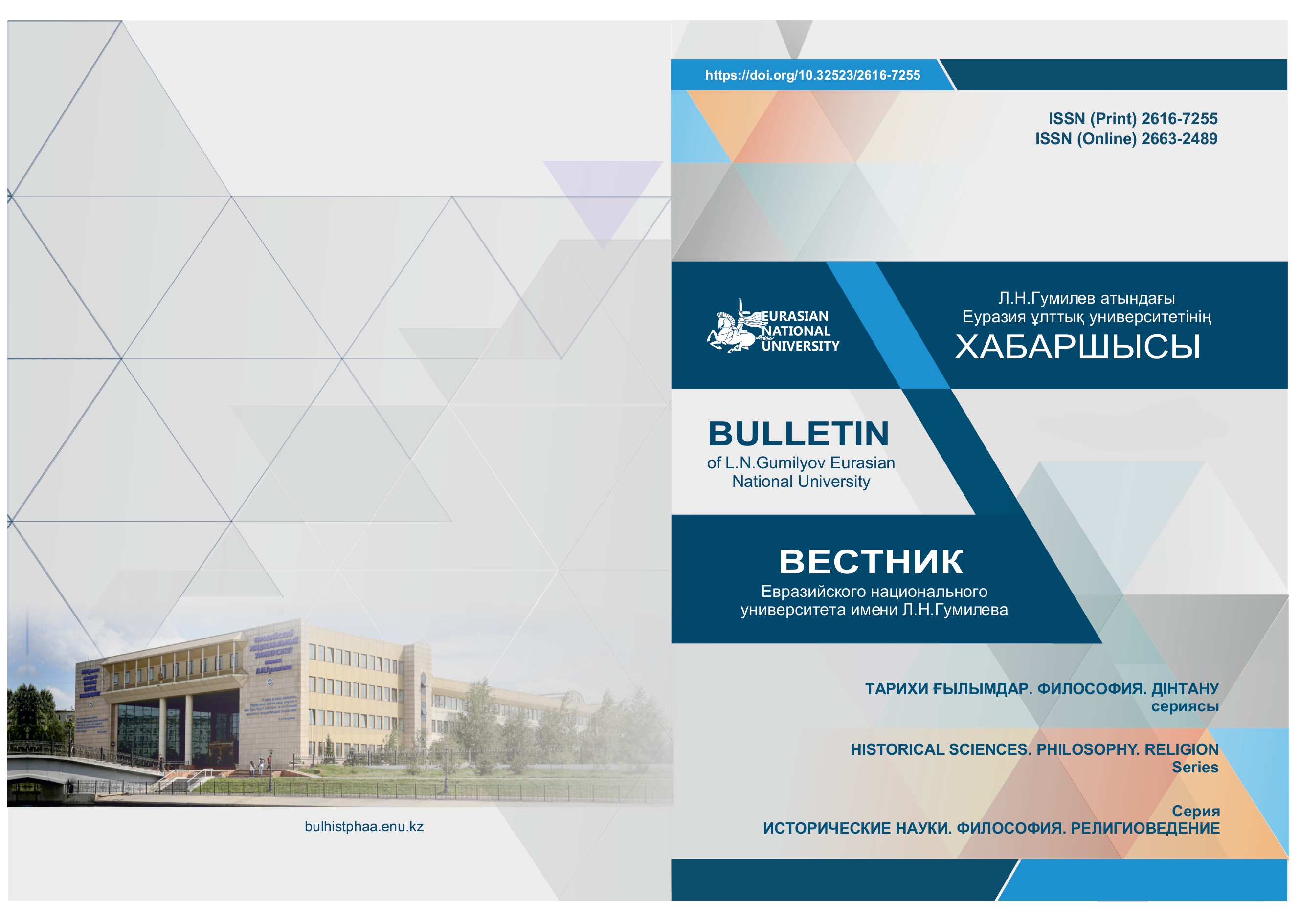Alashorda folk songs: M.Zhumabayev’s heritage in public memory
Views: 279 / PDF downloads: 291
DOI:
https://doi.org/10.32523/2616-7255-2023-145-4-318-331Keywords:
Kazakhstan; Akmolinsk region; the Kazakhs; «byvshyye»; «lishenets»; anti-Soviet folklore; «Alashorda» chastushka; post-memory.Abstract
The article provides a general overview of the socio-cultural life in the Akmolinsk region in the 1920s and 1930s, based on archival and field materials collected in the region. During this period, there was a process of establishing a new authority aimed at excluding certain groups of people, identified as «members of the former establishment» (byvshyye) and «disfranchised» (lishenets), from public and political life. Their segregation was justified by the necessity of building a new society and state based on social justice.
One of the most effective actions, from the perspective of the new authority, was the subversive action of material well-being of the «members of the former establishment» (byvshyye). In Kazakhstan, which was considered one of the backward regions of the East at that time, as part of collectivization and the fight against kulak and bai elements, the confiscation of movable property, such as livestock, belonging to the Kazakhs was carried out. The consequence of this action was a well-known humanitarian catastrophe – famine. The anticipation of this famine was expressed in anti-Soviet folk songs called «chastushka». This form of popular folklore became an expression of the social protest.
The novelty of the study lies in the introduction of texts of anti-government folk songs (chastushka) from the specified period into the scientific discourse. The analysis of the text of «Alashorda» folk song (chastushka) in the Kazakh language revealed its connection to the writings of the outstanding Kazakh poet Magzhan Zhumabayev, suggesting that the folk song (chastushka) originated from his composition.
The evaluation of the events is presented through the examples of the provided chastushkas. A significant number of the «disfranchised» (lishenets) individuals was subjected to physical extermination, moral and psychological violence during the years of the Soviet regime. However, their voices are preserved in the memory of their descendants through post-memory.
Downloads

Downloads
Published
Issue
Section
License
Copyright (c) 2023 Зубайда К. Сураганова, Куралай К. Сарсембина

This work is licensed under a Creative Commons Attribution-NonCommercial 4.0 International License.







